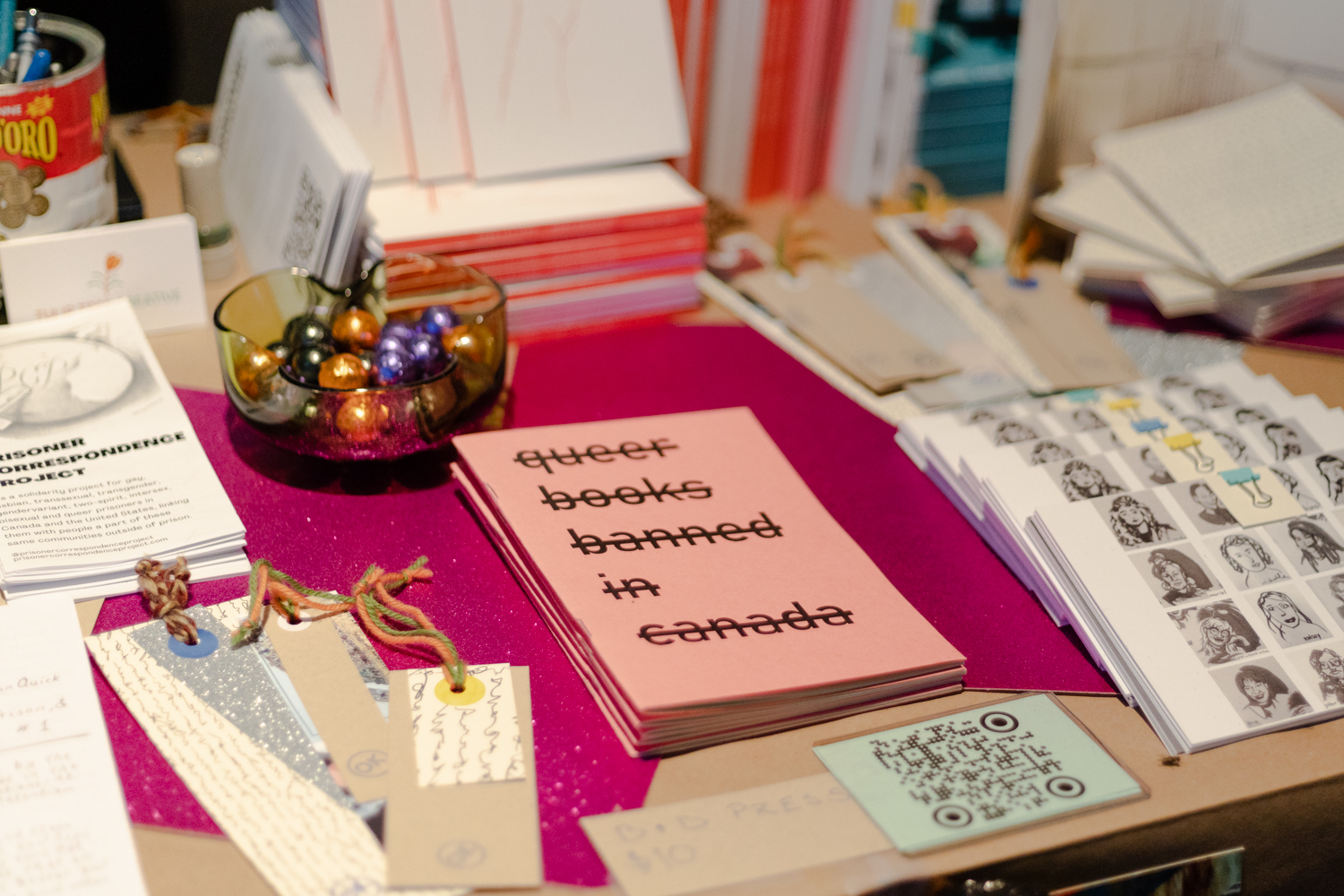OK Stamp Press proposes to bridge the gap between what is seen as publishable while raising queer voices
Volume MTL is an annual Montreal festival showcasing publishing and editing groups. This year, its fifth edition took place from Sept. 28 to Oct. 2.
OK Stamp press is “an experimental project press” that organizes different projects, such as book projects, social tactics-oriented events, and activism/solidarity work with local organizations and community members.
It was OK Stamp’s first time at this festival. They started making books in 2020, but only formed a collective this year.
Dr. Maya Rae Oppenheimer, assistant professor in the Studio Arts department at Concordia University and co-founder of OK Stamp Press, discussed her editing group and their presence at the festival with The Concordian.
Oppenheimer explained that the project was born “from [my] personal experience [as] a student in fine arts at the University of Manitoba in the 1990s; I was keen to publish my work but didn’t know where.”
Oppenheimer explained that the collective’s primary goals are “to center mutual aid,” meaning the printing organization does not make money from the book sales. “We give books to mobilize mutual aid within reader communities.”
She discussed the liberty of zines as mediums of expression. “The DIY nature of zines permits authenticity, in the expression of ideas, the choice of how to put words, to feelings, to ideas.” She added, “with zines and small presses, there’s more agency in the editorial process. Zines are more direct, unfiltered, affordable.”
Oppenheimer discussed the importance of centering queer and underrepresented folks. She noted “publishing is a community-oriented project. We’re always trying to grow and showcase other people’s work.”
This is possible through people buying the proposed books through donations. Their books are available at the Concordia Fine Arts Reading Room.
The purpose of the collective is to work with emerging queer artists “so they get experience going through the editorial book design process, and so they can get a CV line which opens up different grant access applications.”
Oppenheimer emphasized that certain grant applications require people to have already been published, and this collective helps people do precisely that.
Oppenheimer noted the importance of paying authors for their work. Some of their financing is made possible through grants.
The idea is to “represent folks and spaces where they might not otherwise feel comfortable or welcome or afford to table books.”
“As a writer and bookmaker, there’s such potential for books to be powerful dissemination tools and sometimes we put a lot of pressure on exhibits, and the method to measure success, but books, zines, and pamphlets are such rich cultural objects that do just that.”
There is indeed a table fee at Volume MTL 5. Oppenheimer added that because of this financial tax, their table shared space with other organizations, who wouldn’t have the financial ability to hold a table of their own.
On their table at the event, they held titles around carceral justice. She showed The Concordian a book, Open Letters, which focuses on the false accusation of Ricky Cummings as he faces Death Row in Texas.
“It’s a way of getting Ricky’s thoughts and ideas and situation on paper to disseminate, to advocate for his cause and the cause of carceral justice in general.”
The editorial collective seeks to use its access to publishing as a ground for social justice advocacy.
“Books and letter writing is an important way of connecting communities that are either separated by prisons or political borders,” said Oppenheimer.
“In editing, with the authors, it’s always an exchange,” she continued. “We have a collaboration agreement rather than a contract. Folks can withdraw writing at any time, it’s always a dialogue about how we edit to support their work, not to alter their work in any way, and they always have the right to refuse edits.”
“We always accept submissions. It’s very much collaborative,” she added.
A new project the collective is working on is called Epistolary Webs — epistolary meaning letters, and webs meaning the connections between people. The project serves to connect individuals by creating a book made of a collection of letters. It will ultimately raise funds for carceral justice organizations.
“The letters can be anything and everything from a love letter, a breakup letter you want to share, an invoice, a bill, something you find on the sidewalk, a crunchy text; it’s taking correspondence in an expanded sense, but then using it to raise money for carceral justice.”
To get involved, people can visit OK Stamp on their website. Furthermore, letter donations for the Epistolary Webs project are welcome.
